I hope you found it helpful to read in my last BookNotes post to be reminded of the importance of reading about racial diversity, multi-ethnic ministry, and the need to recall and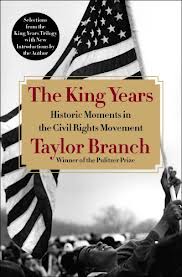 renew the valiant work of the civil rights movement of the 1950s and ’60s. Those books that I listed about Dr. King, the March on Washington, and the civil rights struggles that went on before and immediately after that March, will inform you, move you, make you weep, and perhaps give you some glad joy that Christ’s own church stood with others of other faiths and no faith, to speak about justice, social transformation, racial reconciliation and economic justice.
renew the valiant work of the civil rights movement of the 1950s and ’60s. Those books that I listed about Dr. King, the March on Washington, and the civil rights struggles that went on before and immediately after that March, will inform you, move you, make you weep, and perhaps give you some glad joy that Christ’s own church stood with others of other faiths and no faith, to speak about justice, social transformation, racial reconciliation and economic justice.
That the historic black church and its preaching, piety, prayers, hymns, practices of community, and Biblical literacy was the seedbed for this massive, nonviolent struggle (which lasted decades, against such vicious principalities and powers) remains one of the great testimonies in church history. I hope you read that list, and know a few of the books I cited. If not, we have “operators standing by” as they say. We’re at your service. Perhaps you might start with the Taylor Branch collection. Or Harding’s take on the significance of King. The one about the March on Washington, itself, The Dream, is fantastic, and you won’t put it down!
Here are a few more that I might have listed, not the core texts, perhaps, but excellent, provocative, and good. Consider this a small part two to yesterdays essentials.
R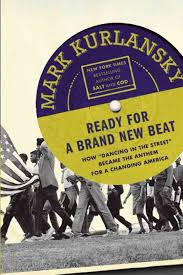 eady for a Brand New Beat: How “Dancing in the Street” Became the Anthem for a Changing America Mark Kurlansky (Riverhead) $27.95 This was one of my most eagerly awaiting books that I was going to enjoy this summer, and was thrilled when it released a few weeks ago. Haven’t read it yet (sigh) but here is what the astute and respected historian David McCullough says of Kurlanks (who wrote the exceptionally interesting books Salt and Cod.) “Every once in a while a writer of a particular skill takes a fresh, seemingly improbably ideas and turns out a book of pure delight.”
eady for a Brand New Beat: How “Dancing in the Street” Became the Anthem for a Changing America Mark Kurlansky (Riverhead) $27.95 This was one of my most eagerly awaiting books that I was going to enjoy this summer, and was thrilled when it released a few weeks ago. Haven’t read it yet (sigh) but here is what the astute and respected historian David McCullough says of Kurlanks (who wrote the exceptionally interesting books Salt and Cod.) “Every once in a while a writer of a particular skill takes a fresh, seemingly improbably ideas and turns out a book of pure delight.”
Kurlansky has written a previous book on 1968, but here his study starts in 1964, looking at the history of Motown, the story of racial integration during this tumultuous period in American culture. And yep, he does all this through the lens of “Dancing in the Streets.” The summer of 64 swept into the year the Beatles landed, and for some of that summer “A Hard Day’s Night” was number one on the Billboard Charts. And then a song by the Supremes; soon there would be a hit by The Animals. But the Martha and the Vandella’s hit was the song of the that fateful summer, the Warren Report, racial issues in major league baseball and serious conversations between King’s civil rights movement the rising Malcolm X (also in Detroit!) This is a fascinating and fabulous study and a fun way into these serious themes. Are you Ready for a Brand New Beat? This could be a great end-of-the-summer read for you.
“I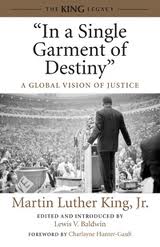 n a Single Garment of Destiny” A Global Vision of Justice Martin Luther King, Jr edited and introduced by Lewis V. Baldwin (Beacon Press) $26.95 I mentioned in yesterdays post that Beacon Press has been issuing some of MLK’s books in what they call “The King Legacy.” They have one compiling his speeches and writings on work and worker’s rights, but this one is surely unprecedented. Here, Baldwin compiled all of King’s various speeches and sermons and writings on what we now know as the globalized economy. For years, I used to use a famous King speech noting the various lands and countries and farmers and workers who ship our various foods to us, noting that we have touched folk all over the world with our morning breakfast. Indeed, there is something good – and very troubling when it turns unjust — about the inter-connections in God’s world. (It was King’s namesake, Martin Luther, who brought a theological description of that — the masks and persona’s we reveal, as God’s hand and feet in the world as we connect with and serve our neighbors.) So, yes, indeed, we are in “a single garment” together, and our destinies are clearly inter-twined.
n a Single Garment of Destiny” A Global Vision of Justice Martin Luther King, Jr edited and introduced by Lewis V. Baldwin (Beacon Press) $26.95 I mentioned in yesterdays post that Beacon Press has been issuing some of MLK’s books in what they call “The King Legacy.” They have one compiling his speeches and writings on work and worker’s rights, but this one is surely unprecedented. Here, Baldwin compiled all of King’s various speeches and sermons and writings on what we now know as the globalized economy. For years, I used to use a famous King speech noting the various lands and countries and farmers and workers who ship our various foods to us, noting that we have touched folk all over the world with our morning breakfast. Indeed, there is something good – and very troubling when it turns unjust — about the inter-connections in God’s world. (It was King’s namesake, Martin Luther, who brought a theological description of that — the masks and persona’s we reveal, as God’s hand and feet in the world as we connect with and serve our neighbors.) So, yes, indeed, we are in “a single garment” together, and our destinies are clearly inter-twined.
The first great chapter here is from “The Vision of a World Made New” a speech given by Rev. King at the Annual Meeting of the Women’s Convention Auxiliary of the National Baptists in 1954. The Joint Statement against South African Apartheid done in 1957 with Elanor Roosevelt, as well as several others, are included. His address in Amsterdam, Holland given in August of ’64 is reprinted as is his famous piece “World House” from Where Do We Go From Here (1967.)
There are eight chapters in the second portion “Breaking the Chains of Colonialism: The Rise of Peple of Color in the Third World” where King weighs in on global affairs, including observations about Africa, Ghana and India.
The third portion of “In a Single Garment of Destiny”… compiles pieces about global poverty (including “The Octopus of Poverty” that appeared in The Mennonite in 1965.) Again, these are important for their historic value, but also because in many ways he was prescient, and in some ways, his insights are as important today as then. Times have changed, but the faith-based call to prophetic social change endures…
Several concluding pieces make up the last portion — as useful today as then — and look at global injustices, revolution, and the Biblical call to principles but strategic nonviolence. This powerful portion includes his important speech before the War Resisters League in 1959 as well as an article in the popular Redbook magazine in November of ’64 (Who know?) Of course the famous and firey, must-read speech before CALC at Riverside Church April 4, 1967 is here, as are his hopeful words on “The Middle East Question” from 1967.
This is a fine collection, bringing together some good material about global concerns in one good volume. Highly recommended.
A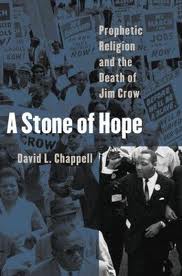 Stone of Hope: Prophetic Religion and the Death of Jim Crow
Stone of Hope: Prophetic Religion and the Death of Jim Crow
David L. Chappell (University of North Carolina Press) $23.5 This
massive work has been on my own reading list for a while, and although I
have not gotten to it yet, I know enough to list it here. The Atlantic Monthly
says that it is “one of the three or four most important books on the
civil rights movement.” They continue, “Chappell argues persuasively
that revivalism engendered the civil rights movement’s solidarity,
leadership, worldview, and rhetoric.” Many reviewers have noted
surprise, suggesting it is “innovative” or “refreshingly unconventional”
and “a new interpretation.” The Wall Street Journal says it is “delightfully opinionated” and “a first-rate work of history.” I can’t help but love the New York Times Book Review
quote, “Intricate, dazzling in its reach into so many corners of black
and white Southern life and fascinating at every turn…In its mix of
rigor, daring, and perceptiveness, A Stone of Hope is a spectacular work.”
Makes
you want to put it on your, list, too? I know that Fannie Lou Hamer
and James Lawson and Modjeska Simkins and other black leaders drew on
the prophetic tradition of the Old Testament and, although sometimes
translated into public, more secular language, found their intellectual
roots in their Biblical worldview. Segregationists outvoted and
outgunned black intellectuals, but, Chappell argues, their cause lost,
“because they did have have a religious commitment to their cause.” Wow.
You should know this book. Professor Chappell teaches history at the
University of Arkansas.
F ight: A Christian Case for Nonviolence Preston Sprinkle (David C. Cook) $14.99 Of course, most know that King encouraged those involved in sits ins and pray ins and civil disobedience to be fully committed to faith-based nonviolence. Stride Toward Freedom, the riveting tale of the Montgomery bus boycott is one of the texts that both explain this, and tells how they prepared people to “turn the other cheek” even when physically assaulted. I myself used portions of the Montgomery pledges in training folks for nonviolence direct action against dangerous nuclear power plants in the 70s, and found others, in jail and out, who were equally inspired by King’s impressive journey to the power of Christ to disrupt injustice by embodying love for enemy. Of course his liberal mainline Protestant’s almost talked him out of that (thank God for Ghandi and his influence on King, who returned his vision to Jesus!) It is baffling to me how so many people can say they admire King, but disagree with the heart of his vision: Christian love lived out in a social gospel that was committed to the power of grace and mercy shown to all. The verse from the Apostle John’s “we love because He first loved us” was important to King, as was the cosmic call to be agents of reconciliation (2 Corinthians 5: 16ff.) Yes, he took Jesus literally on this whole business of praying for those who persecute us.
ight: A Christian Case for Nonviolence Preston Sprinkle (David C. Cook) $14.99 Of course, most know that King encouraged those involved in sits ins and pray ins and civil disobedience to be fully committed to faith-based nonviolence. Stride Toward Freedom, the riveting tale of the Montgomery bus boycott is one of the texts that both explain this, and tells how they prepared people to “turn the other cheek” even when physically assaulted. I myself used portions of the Montgomery pledges in training folks for nonviolence direct action against dangerous nuclear power plants in the 70s, and found others, in jail and out, who were equally inspired by King’s impressive journey to the power of Christ to disrupt injustice by embodying love for enemy. Of course his liberal mainline Protestant’s almost talked him out of that (thank God for Ghandi and his influence on King, who returned his vision to Jesus!) It is baffling to me how so many people can say they admire King, but disagree with the heart of his vision: Christian love lived out in a social gospel that was committed to the power of grace and mercy shown to all. The verse from the Apostle John’s “we love because He first loved us” was important to King, as was the cosmic call to be agents of reconciliation (2 Corinthians 5: 16ff.) Yes, he took Jesus literally on this whole business of praying for those who persecute us.
This new book, Fight, by Preston Sprinkle is a masterpiece of a work, and surprising in many ways (not least of which that it was bravely published by a mainstream, conservative evangelical publisher.) I think he is a new young voice that will help us understand Dr. King, and to grapple with his call to Biblical values when it comes to questions of the legitimate use of violence. Interestingly, Sprinkle is known in some young Reformed circles, and among most book-buying evangelicals these days, as he has co-written books with the mega-seller Francis Chan, who, significantly, “highly recommends” this book. Sprinkle is not an Anabaptist. As he puts it, “I am not Amish, Quaker or Mennonite. I own several guns and still believe that the smell of a recently fired shotgun on a crisp fall morning comes darn near close to paradise.” So he did not grow up learning about Biblical pacifism. Neither was he a part of the 60s student activists, the secular or religious left (like, say, Jim Wallis of Sojourners.) Sprinkle comes at this topic as a New Testament scholar. His PhD is from Aberdeen and he easily quotes top notch scholars such as Tremper Longman, Richard Bauckham, Tom Wright (and Chris Wright), Peter Leithart, Darell Bock, Gordon Fee, Ben Witherington, Richard Hays, and so many more, including, of course, John Howard Yoder.
This is a good, careful study of the Bible, especially the New Testament, by a conservative and careful exegetic. He explains, “the more I studied, the more I discussed, the more I’ve become convinced: Christians shouldn’t kill or use violence — not even in war.”
I could say more, but at least know this: again, Sprinkle is not an idealist hippy, he is not anti-American, and he is not aligned with a historic peace church. The endorsements on this book are stellar, from significant Biblical scholars and theologians such as Jesus scholar (and follower) Scot McKnight and Michael Gorman (of Saint Mary’s Ecumenical Institute in Baltimore, who is particularly esteemed in Pauline studies.) One moving blurb is from a retired Master Sergeant in the US Marine Corp who served in WW II, Korea and Viet Nam (and a Purple Heart medal recipient.) Robert Armstrong writes, “Fight will steer your gaze away from a nationalistic worldview and force you to look upon Jesus, the One who conquered the enemy by suffering.” Another rave review comes from a Lieutenant Commander inthe Chaplain Corps of the Navy SEALS. I note this just so you know this is serious business, and can be studied with an open mind. If you are interested in King’s view, or, better, if you are interested in grappling with what some of us think the Bible teaches, you should read this book.
We stock many, many other books about this matter (from many different perspectives and views.) Please feel free to inquiry if you want other suggestions.
Also, there are several good anthologies of primary source writings by those who have been important in this arena. The aforementioned Preston Sprinkle, while a top-flight Biblical scholar, does not draw upon the more general peace movement and social change movements, the passionate thinkers and activists who have called to us from the past. One of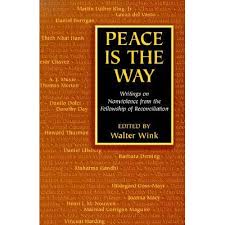 my favorite collections, for those wanting to dip in to this grand tradition, include Peace Is The Way: Writings on Nonviolence from the Fellowship of Reconcilation edited by Walter Wink (Orbis; $25.00) Martin Luther King, Jr. was a part of FOR — which, by the way, was founded by two Christians in the devastating wake of WWII, but now is broadly interfaith in its orientation. In this almost 300 page anthology, you’ll be able to read famous pieces from their historic magazine, authored by King, Howard Thurman, Barbara Deming, Mahatma Gandhi, A.J. Muste, Vincent Harding, Cesar Chevez, Dorothy Day, Henri Nouwen, Jim Forest, Jim and Shelley Douglas, John Dear, and so many others. These are the sorts of writers and activists that influenced King, in many cases, and, agree with all if it or not, it is a volume worth having.
my favorite collections, for those wanting to dip in to this grand tradition, include Peace Is The Way: Writings on Nonviolence from the Fellowship of Reconcilation edited by Walter Wink (Orbis; $25.00) Martin Luther King, Jr. was a part of FOR — which, by the way, was founded by two Christians in the devastating wake of WWII, but now is broadly interfaith in its orientation. In this almost 300 page anthology, you’ll be able to read famous pieces from their historic magazine, authored by King, Howard Thurman, Barbara Deming, Mahatma Gandhi, A.J. Muste, Vincent Harding, Cesar Chevez, Dorothy Day, Henri Nouwen, Jim Forest, Jim and Shelley Douglas, John Dear, and so many others. These are the sorts of writers and activists that influenced King, in many cases, and, agree with all if it or not, it is a volume worth having.
An even more impressive anthology — a reader that covers three millenia of writers, some famous, many less so — is the remarkable Christian Peace and Nonviolence: A Documentary History edited and compiled by Elizabethtown College professor, Michael Long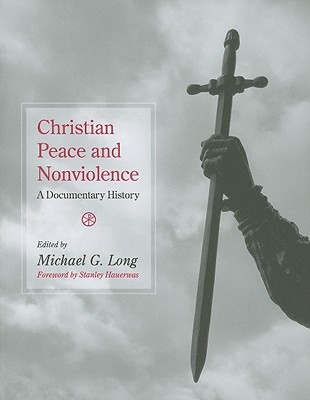 (Orbis; $40.00.) This volume is so comprehensive, I’ll just quote the nice overview written by Orthodox theologian, Jim Forest, who describes it helpfully like this:
(Orbis; $40.00.) This volume is so comprehensive, I’ll just quote the nice overview written by Orthodox theologian, Jim Forest, who describes it helpfully like this:
The book’s structure is historical, beginning with
a selection of scriptures of peace from the Old and New Testaments.
Authors from the early Church include Justin Martyr, Athenagorus,
Tertullian, Origen, Cyprian, Arnobius, Lactantius, Basil the Great,
Pelagicus, Paulinus of Nola, Benedict of Nursia and Francis of Assisi.
There are also extracts from the biography of Martin of Tours and
ancient accounts of the martyrdoms of Maximilian, Marcellus, and the
brothers Boris and Gleb.
Erasmus of Rotterdam is included in a
section of writings from the Reformation period. Among those represented
in the 1600-1900 section that follows are George Fox, William Penn,
John Woolman, William Lloyd Garrison, Frederick Douglass, Sojourner
Truth, Lucretia Mott, Jane Addams and Leo Tolstoy.The book’s
twentieth-century authors include Martin Luther King, Thomas Merton,
Pope John XXIII, Oscar Romero, Stanley Hauerwas, John Howard Yoder,
Dorothy Day, A.J. Muste and André Trocmé. The anthology concludes with
twelve entries written in the past eleven years…
S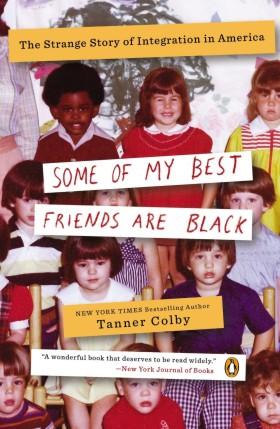 ome of My Best Friends Are Black: The Strange Story of Integration in America Tanner Colby (Penguin) $16.00 This is not about the Jim Crow years, the civil rights struggle or the brave movement of those who followed King’s activism. Rather, it is what race relations were like in more recent years — with institutionalized racism prevalent and de facto segregation common in many place, but all the kids learning about the “I Have a Dream” speech in school. We a just love the diversity vision, but how many are actually experiencing it? It promised in the promo literature to be written with “boundless curiousity and a biting sense of humor.” Since the author had written books on both John Belusi and Chris Farley, I expected it to be interesting and a bit funny. It wasn’t really funny, but, still — what a book!
ome of My Best Friends Are Black: The Strange Story of Integration in America Tanner Colby (Penguin) $16.00 This is not about the Jim Crow years, the civil rights struggle or the brave movement of those who followed King’s activism. Rather, it is what race relations were like in more recent years — with institutionalized racism prevalent and de facto segregation common in many place, but all the kids learning about the “I Have a Dream” speech in school. We a just love the diversity vision, but how many are actually experiencing it? It promised in the promo literature to be written with “boundless curiousity and a biting sense of humor.” Since the author had written books on both John Belusi and Chris Farley, I expected it to be interesting and a bit funny. It wasn’t really funny, but, still — what a book!
This just came out in paperback and it tells an amazing story of a white guy who realized that he had no black friends. Raised in the white flight world of Alabama in the 70s, he realized he wanted to do something about his insular background. This book not only tells the general story of Colby learning about racial matters in the US, but describes in detail the situation of suburban Birmingham schools, his move to Kansas City and learning of the racist housing policies in that troubled town, the impact of “affirmative action” type protocols in the advertising world of Madison Avenue professionals, and the dramatic story of the efforts of a Catholic Church in a parish in Louisiana. This memoir really explores some unexpected aspects of our culture — both black and white. Many serious reviewers have commended this for being thoughtful and insightful.
Timothy Nafuali says,
In weaving together the personal narratives (including his own) of the Children of White Flight and the Children of the Dream, Tanner Colby has crafted a powerful piece of social commentary and contemporary history. Hugely readable, quirky, and incredibly smart, Some of My Best Friends Are Black present four unforgettable smaller stories to tell the big story of race in today’s America.
BookNotesSPECIAL
DISCOUNT
ANY ITEM MENTIONED
20% off
order here
takes you to the secure Hearts & Minds order form page
just tell us what you wantinquire here
if you have questions or need more information
just ask us what you want to knowHearts & Minds 234 East Main Street Dallastown, PA 17313 717-246-3333
read@heartsandmindsbooks.com
